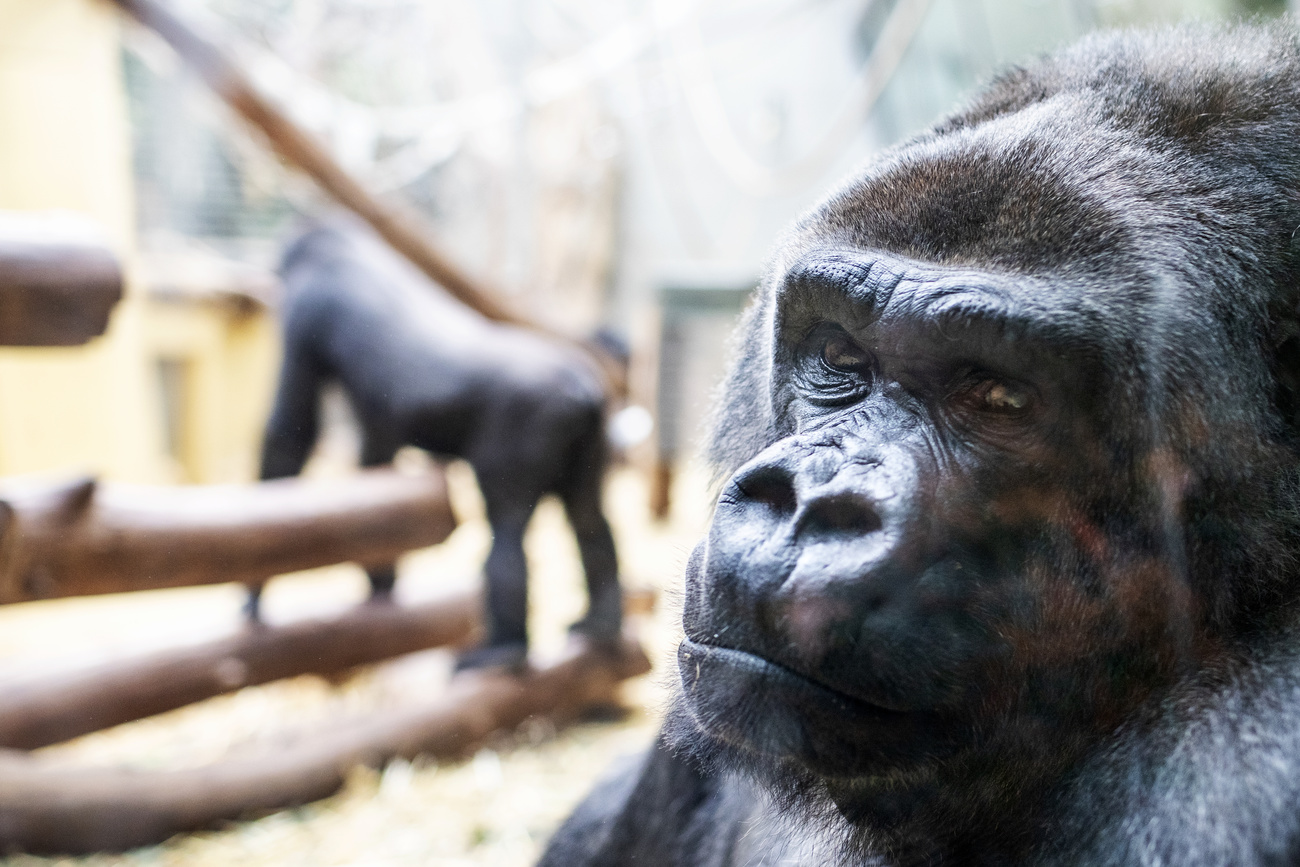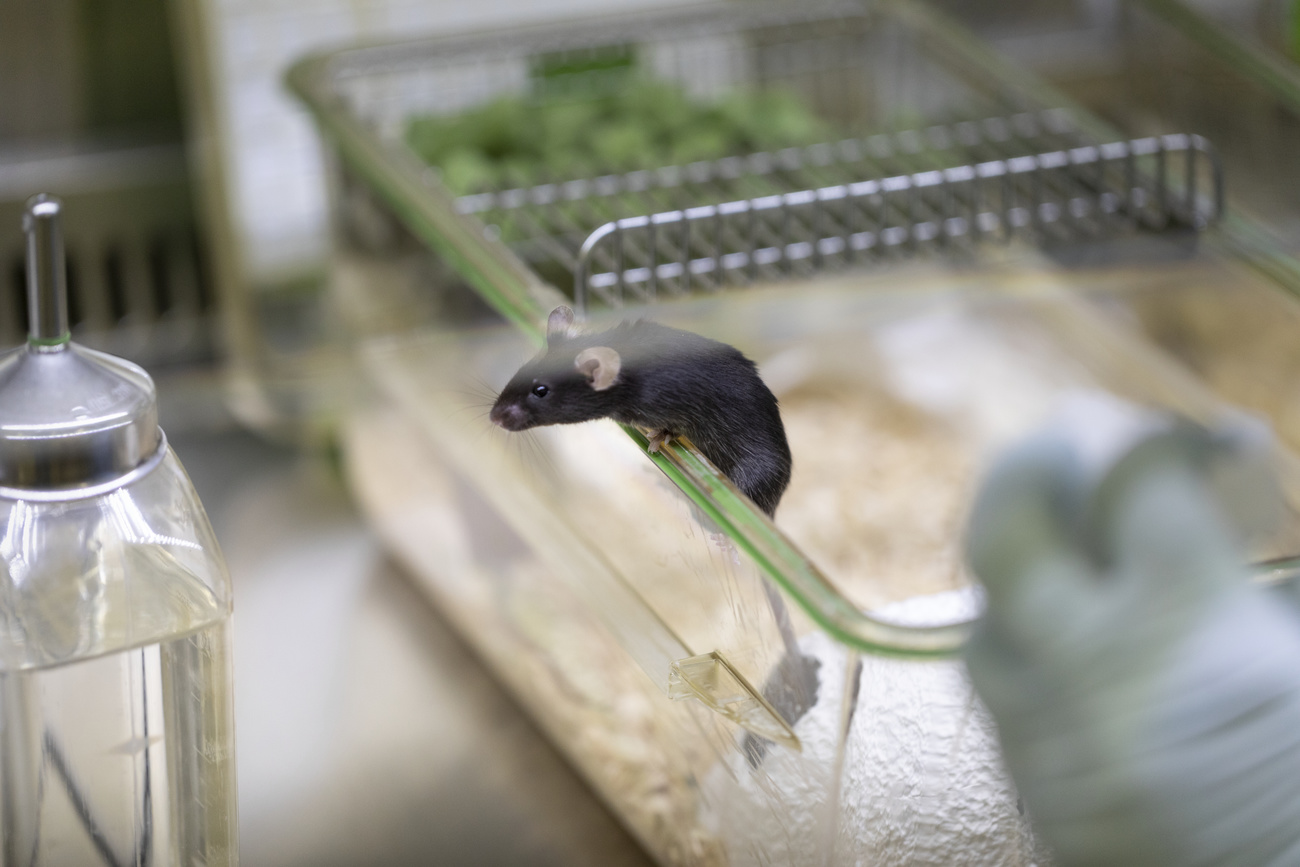
Voters decline to give limited rights to non-human primates

In a world-first vote, the electorate in Basel City in northern Switzerland has decided not to enshrine the basic rights of all non-human primates in the cantonal constitution.
In a clear result on Sunday, 74.7% of voters disagreed with the initiative, launched by the Sentience PoliticsExternal link group in 2016, which demanded an amendment to the constitution to guarantee “the right of non-human primates to and to physical and mental integrity”. Turnout was 51%.
In addition to the great apes (bonobos, chimpanzees, humans, gorillas and orangutans), primates also include baboons, macaques, ring-tailed lemurs, guenons, marmosets, lorises and lemurs. There are thought to be 300 to 500 primate species.
Campaigners had pointed outExternal link that primates “have an enormously high sensitivity to pain, grieve for deceased acquaintances, feel compassion towards other animals and are able to plan ahead into the future”.
These abilities regularly become their fate, they said. “Because of their similarity to us humans, they are considered particularly attractive for biomedical research or are exhibited for observation and entertainment purposes. When they are no longer profitable or optimal care becomes more complicated, they can be euthanised without much hassle. Such practices are morally unjustifiable.”
The cantonal parliament in Basel City, home to one of Switzerland’s most popular zoos and the country’s pharmaceutical industry, had come out against the initiative. It argued that Switzerland’s animal protection law was already one of the strictest in the world and that the initiative wouldn’t improve the protection of primates living in the canton.
“Rather, it would dilute our fundamental and human rights and blur the line between humans and animals. The initiative also sends out a signal that could increasingly question the keeping of animals,” the authorities said.
The Swiss government is preparing a constitutional reform in a bid to give animal welfare a boost.
No ban on animal experiments
In a separate national vote on Sunday, the Swiss rejected banning all experiments on animals. It was the fourth failed vote on the issue since 1985.

More
Swiss voters reject ban on animal testing
Campaigners had met strong opposition from the country’s huge pharmaceutical sector. The industry, which includes heavyweights Roche and Novartis, says such research is needed to develop new drugs. The Swiss government and parliament had recommended voters reject the initiative.
More

In compliance with the JTI standards
More: SWI swissinfo.ch certified by the Journalism Trust Initiative






























You can find an overview of ongoing debates with our journalists here . Please join us!
If you want to start a conversation about a topic raised in this article or want to report factual errors, email us at english@swissinfo.ch.